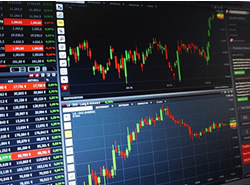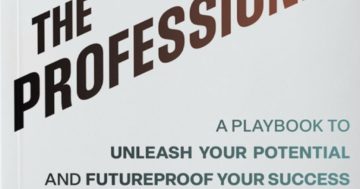Tony Sandercock* says the volatility we are experiencing right now is all part and parcel of the share market investment experience.
 There are three words that many experts find hard to say: “I don’t know.”
There are three words that many experts find hard to say: “I don’t know.”
In complex circumstances with so many unknowns, “I don’t know” can, however, be a better option than guesswork.
We suddenly have all sorts of economic experts making all sorts of predictions, but I can tell you, much of that economic analysis is guesswork.
So, what does that mean for your super balance?
If history is anything to go by, chances are we will be looking back at coronavirus in six months’ time, mourning its victims and seeing it as just another speed hump on the long-term share market graph.
From the SARS outbreak to the twin strikes of Ebola in 2014 and 2016, and a bout of Sika in between, there have been nine global epidemics since 1988 that have made headlines and jostled markets.
But each time, the outbreaks — and the financial losses — were eventually contained.
Do I know for sure that coronavirus will be the same?
Well, no-one does.
So, what do I know?
I can tell you that impulse is your enemy.
Volatility is a source of discomfort for all of us.
It tempts us to make near-term decisions that just aren’t good for us.
Sometimes, it’s hard to resist counterpunching.
In a previous blog, I rated the last few years as “the best I could remember” and that similar tailwinds are not likely to continue in the future.
There was a warning to investors that lots of bad stuff happens — world wars, depressions, pandemics.
The volatility you are experiencing right now is all part and parcel of the share market investment experience.
If you open the door for better returns (which have been very handsome in recent years), expect some shenanigans along the way.
Rest easy in the knowledge that markets have always recovered.
I can also tell you that the odds are against you if you think you can trade through this profitably by picking the highs and lows.
It’s true that some people do get lucky by making bets on certain stocks and sectors or getting in or out at the right time or correctly guessing movements in interest rates or currencies.
Depending on luck though is simply not a sustainable strategy.
And here is a really important one.
In times of duress, use market volatility as a gauge for your risk tolerance.
When market conditions return to calm, use your newfound experience to fine-tune your approach to investing to be better prepared next time.
Because there will be a next time.
And finally, if you are watching your investments and losing some sleep, it’s time to talk to your adviser.
* Tony Sandercock is an FPA Certified Financial Planner, wealth advisor and retirement specialist at wetalkmoney.
This article first appeared at www.wetalkmoney.com.au.











